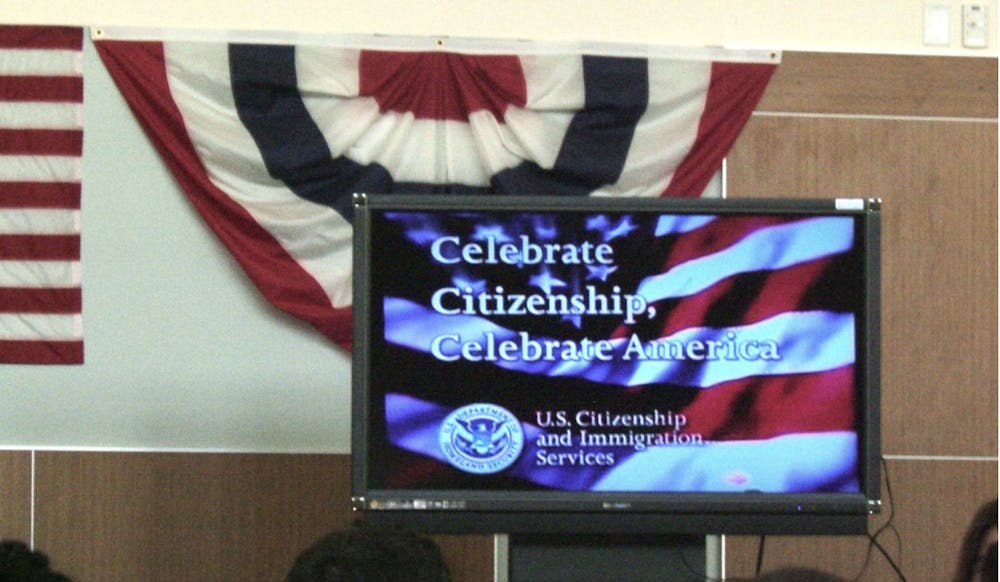
A statistic from the Department of Homeland Security estimates that “Two million illegal aliens have left the United States in less than 250 days, including an estimated 1.6 million who have voluntarily self-deported.”
“We will find you. We will apprehend you. We will put you in a detention facility and we will deport you,” says Corey Lewandowski, chief adviser to Secretary of Homeland Security Kristi Noem, on Bad Bunny headlining the 2026 NFL Halftime Show.
“We have traveled far in search of safety. I believe that the US is the safest place to raise my family and provide them with all that they deserve and need,” explains Muhammed, an immigrant from Afghanistan.
A myriad of competing voices constantly tell the story of immigration in the United States. Statistics reduce immigrants to a set of numbers. Politicians turn them into talking points. Yet, for millions of immigrants, the struggle and difficulty of seeking asylum or moving to the U.S. is not a debate, but a lived reality — a choice made out of necessity and hope.
I was born into an immigrant family in Miami, Florida. I have been a firsthand witness to the struggle of leaving an entire life behind and rebuilding one from scratch. I hold an American passport, carry a Florida driver’s license and have only ever considered the United States my home. For that, I am lucky, but it is also a great shame to say that, in many ways, I no longer recognize my country.
The United States has always claimed to be a nation of immigrants, built by people who arrived from different parts of the world, carrying only hope and determination. From the earliest waves of European settlers to the millions of people who arrived at Ellis Island and others who now seek asylum through the border, immigration has always been a central part of the American story. Today, it is the backbone of much of our workforce, our culture and our communities. But too often, that history has become ignored, and instead of being celebrated as the foundation of our country, immigrants are treated with suspicion and hostility from even the highest government offices.
This contradiction is something I have witnessed in my own family. Many of my relatives and family friends fled repression and dictatorship in Cuba and sought a haven in the United States. For them, the U.S. was not just another country, but a symbol of hope and a beacon of freedom. Every Thanksgiving, family members talk about how thankful they are to have left Cuba, how different their lives might have been if they stayed and how the U.S. has allowed them to raise their children in a place where freedom of opportunity and expression truly takes root. These stories have become a constant reminder to me that the people who immigrate to this country have their own stories and struggles, and they should not be reduced to a measly statistic or used to accomplish an ICE quota.
The immigration process is anything but easy. Having watched my family navigate it, I know how grueling, expensive and dehumanizing it can be. Applications take years to be reviewed, paperwork piles up and legal fees drain resources that families can barely afford to spare. For those fleeing violence, economic despair or political persecution, the waiting can be unbearable. And for many, the process results in rejection. The people I have known waiting for legal status were not trying to undermine the system, but were looking to make an honest living and raise their families.
The rhetoric we hear on the national stage rarely reflects this truth. The current Administration speaks in absolutes: about “aliens,” “security threats” and “invasion.” These phrases dehumanize the real people who are on the other side of the situation and strip away their individuality. When a person becomes nothing more than a statistic, it becomes easier to dismiss them. When I think of immigration, I think of my own family sitting around the table in Miami. I see my neighbors and the people I run into at my local grocery store. I see people who, like Muhammed, want nothing but to live in peace and safety.
I sometimes wonder what kind of country my generation will inherit. On one hand, I am grateful for the rights and privileges of being a U.S. citizen. On the other hand, I have never felt such a stark disconnect between the ideals the United States is meant to uphold and the policies currently being enacted. When I hear politicians threaten and verbally belittle immigrants, I see the faces of my parents, my aunt and cousins and the rest of my family. If they had been met with the same hostility, where would I be today?
Immigration is not just a political issue; it is a human one. And if we forget that, we risk losing the very soul of the nation we claim to protect.
Alyssa Gonzalez is a junior majoring in Political Science and International Studies. Her column approaches the political atmosphere through an individual lens, grounding the conversation in empathy and clarity in an attempt to humanize the field.





